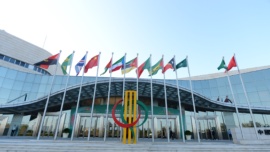A member of the Portuguese Government was recently in Macau. The purpose of the trip included the review of the existing bilateral agreement on double taxation and the signature of an agreement concerning the exchange of financial information. The latter is a type of agreement Portugal signed with various jurisdictions such as Andorra, Bermuda, the Cayman Islands and the like. Other reasons may have concurred, but the Macau side was not prepared to do so. (If and why Macau deserves to be in such company would be an interesting subject. In the end, no signature took place.)
The immediate motive was the fact that related legislation was (and still remains) under discussion in the Legislative Assembly. That was enough to frustrate the purported aim of the trip. Indeed, it would be inappropriate to sign a specific agreement with a particular country while legislators discuss the general principles of such type of exchange.
That being the case, if no other urgent matters justified the trip, it is a bit puzzling that it happened at all at this time in the terms made public. It suggests something did not go according to plan. For the record, that member of the government also visited Hong Kong, with a comparable purpose, but did not meet a similar fate. But these are, finally, somewhat marginal aspects.
More surprising, perhaps, is how little discussion took place publicly on the subject, and how little of it percolated to the media. It is a topic that has been on the international agenda for quite a while. It has obvious relevance on multiple levels, spanning from those concerning the protection of privacy and economic freedom to those relating to the prevention of terrorism and money laundering.
Moreover, the new regulation is not of interest to Portugal alone, far from it. For instance, the OECD website on matters of fiscal co-operation and transparence reported, in March this year, the signature of such type of agreements between Hong Kong and six other countries.
Therefore, it is arguable that the merits or difficulties of such legislation, and the international processes and trends where the discussion of this type of regulation fits in, deserved a broader coverage and wider public clarification. The matter is not receiving an attention commensurate with its importance. It is dealt with a certain lightness of approach. It may seem we are dealing with a minor administrative matter, but that is arguably not the case.























